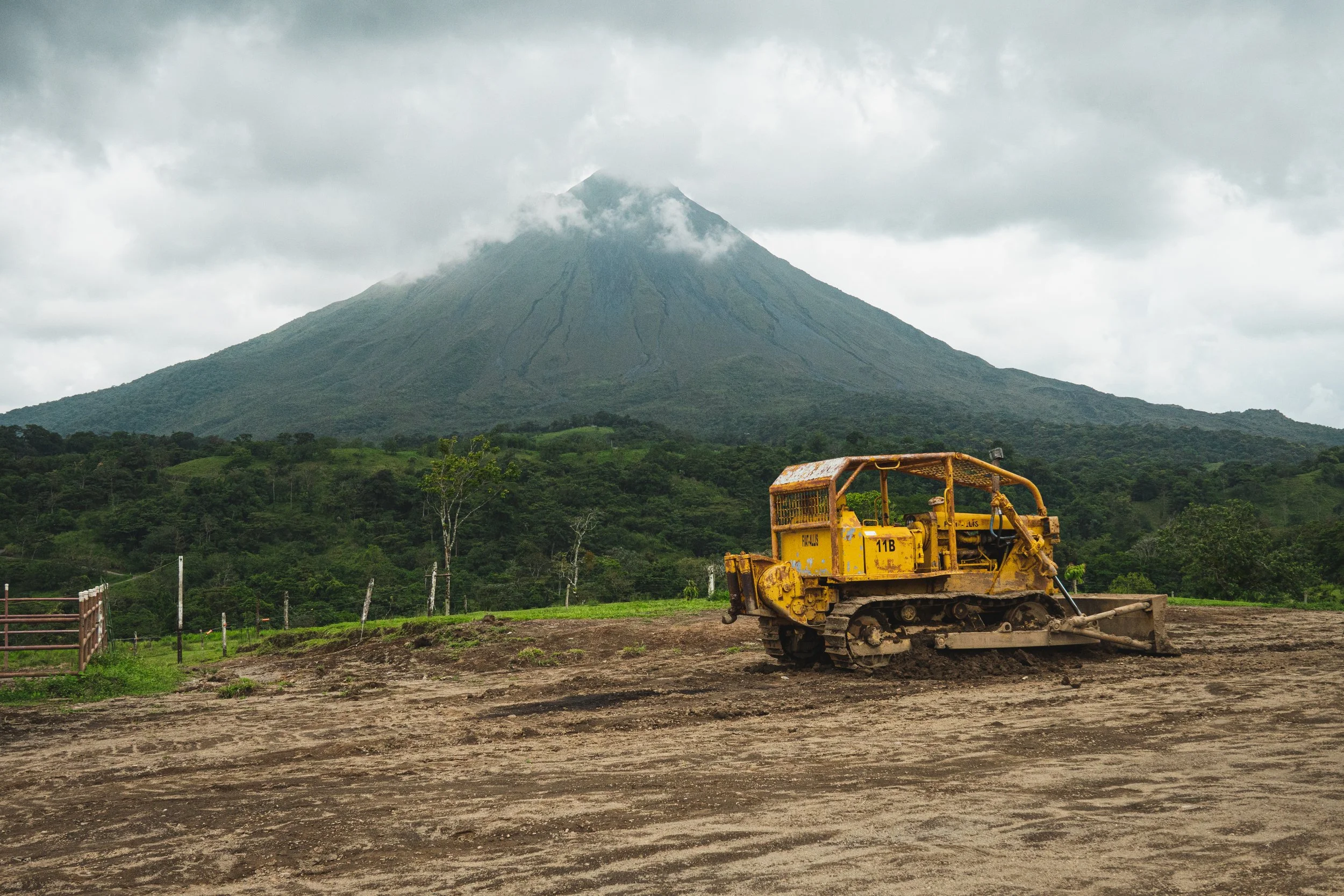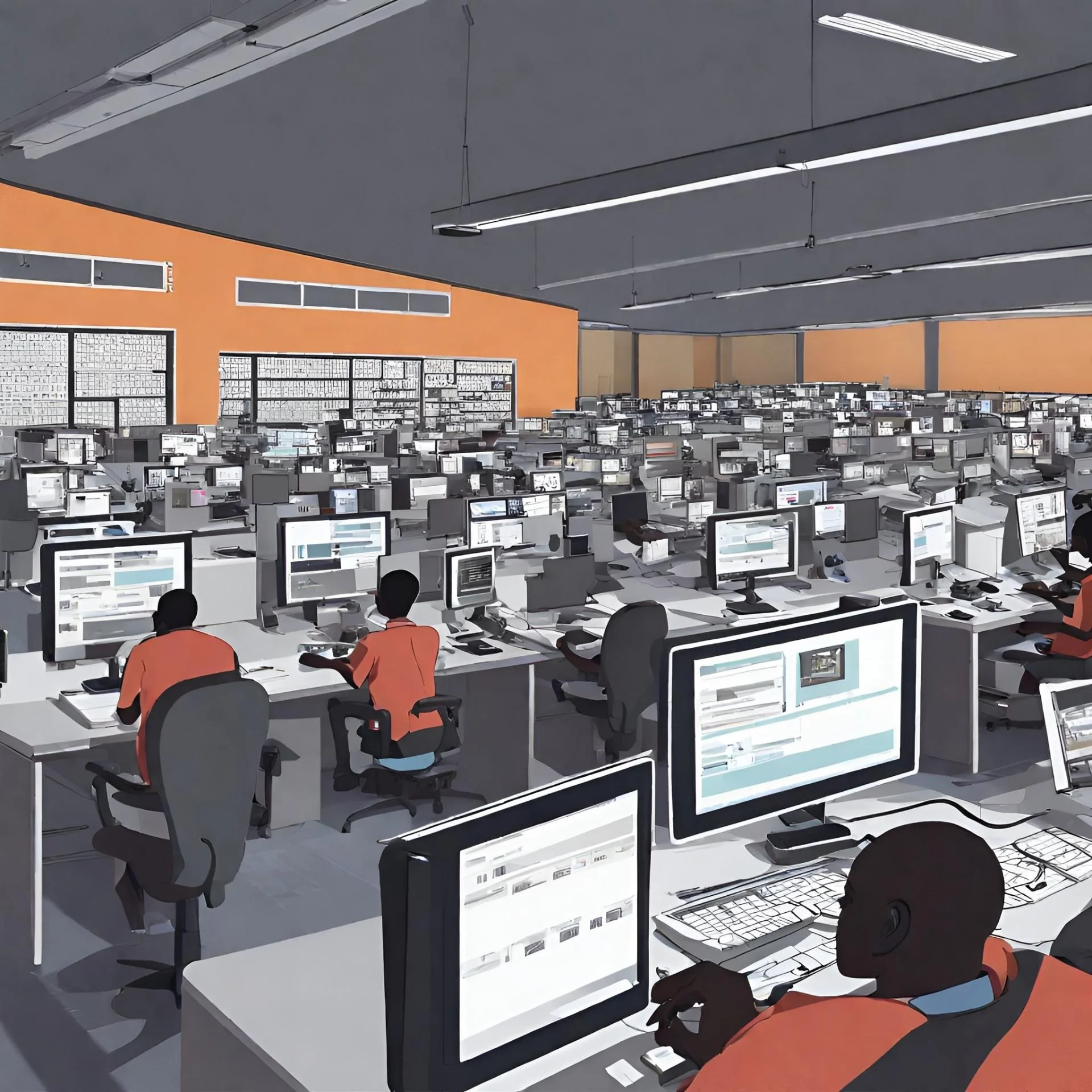BY NINA DAVIS
In a report by journalist Russell Gold, the citizens of Sweetwater, Texas have witnessed an explosion of all three since 2017. Acres of dumped 200-foot-long wind turbine blades are the cause. Thousands of blades are delivered to the small town each year cut into three pieces equivalent to the length of a school bus. This ritualistic dumping has stacked these blades into piles 10 feet high covering more than thirty acres. This draws attention to hypocrisy within the renewable energy sector when they assert that green energy is good for the environment while it continues to lack sustainable circularity.
BY KAMERYN RICHARDSON
Despite publicly denouncing child labor, major cocoa corporations fall short of eliminating distributors engaging in this practice from their supply chains. In the absence of compulsory anti-child labor due diligence, progress on this front has proven stunningly slow. Pledges to eradicate the “worst forms of child labor” by 2005, solidified under the voluntarily-enforced Harkin-Engel Protocol, remain unhonored.
BY IMAN AWAD
Despite various U.S. policy measures to hold the Burmese military accountable, the ongoing escalation of violence suggests that there is still considerable progress to be made, particularly in the recognition of corporations that continue to operate in Burma. With the formal declaration of genocide, the U.S. now bears both a moral and legal obligation to take immediate and responsive action. Morally, it restores dignity to the Rohingya and other victims of the genocide by acknowledging their pain and trauma — and now it’s time for corporations to do the same.
BY MORGAN WILSMANN
AI models that power the likes of OpenAI’s ChatGPT use humans to tease out and label horrific content, like child sexual abuse, bestiality, murder, suicide, torture, self-harm, or incest, so the AI system may “learn” to filter out problematic data before the end user sees it. And, as with most “low-skilled” undesirable work, these responsibilities disproportionately fall upon the economically vulnerable in developing countries. Kenya, with its educated English-speaking workforce, has become a hub for outsourcing content moderation in this area.
BY SHEIDA HOOSHMANDI
This research examines the potential for distributed solar photovoltaics (PV) paired with lithium-ion battery energy storage systems (solar plus) to serve as resilient community-level microgrids that generate and store power locally to sustain critical electricity loads when the centralized grid is intentionally disabled for public safety.
BY ANNE-CHARLOTTE FROTTÉ
Today, Chile privatizes resources like water and minerals, and is a major supplier of lithium and copper, both of which are used for clean energy storage and transportation. Chile is now working to use their advantage in green hydrogen production to become one out of three of the world’s largest hydrogen exporters by 2040, and produce green hydrogen at the lowest cost by 2030.
BY AHAVA ZAREMBSKI
From her experience as the CEO of an energy impact innovation startup, Ahava Zarembski has come to understand several key challenges facing the ecosystem of impact startups. Current frameworks for initial funding make it difficult for impact innovations - designed to improve the ESG (Environmental, Social, or Governance) related challenges facing our world today - to receive the investment they require. In this piece she highlights both core problems and potential solutions to the difficulties facing impact innovations as they attempt to scale up their operations.
BY MIRABAI VENKATESH
The case of La Oroya, Peru provides insight into how International Investment Treaties (IITs) and their Investor-State Dispute Settlement (ISDS) processes enable foreign corporate interests to pressure governments to allow profit-driven violations of environmental and human rights in developing countries.
BY SHU FUKUYA
Until 2018, the Ethiopian People’s Revolutionary Democratic Front (EPRDF), led by the Tigre-based armed group known as the Tigray People's Liberation Front (TPLF), ruled Ethiopia as the majority party, resulting in relative political stability. However, the appointment of Prime Minister Abiy in 2018 caused political reforms and a power shift, leading to conflict between the federal government and the TPLF. The resulting political instability has suddenly led to a slowdown in economic development and the eruption of a multifaceted humanitarian crisis. From being lauded as a developmental success just a few years prior to the COVID-19 pandemic, Ethiopia is now a leading example of sustainable development in crisis.
BY MEGAN H. DOHERTY
As climate change drives conflict across the world, women and girls face increased vulnerabilities from structural inequalities, debilitating cultural norms, economic insecurity and increased risks to gender-based violence, including conflict-related sexual violence, human trafficking, and child marriage. According to UN Women, when disasters strike, women are less likely to survive and more likely to be injured due to long standing inequalities that have created disparities in information, mobility, decision-making, and access to resources. As more data reveal their clear correlation, the amplified impacts of climate change and gender and the linkages between women’s empowerment and effective climate action must be addressed
BY LAYAN SHAABAN
Since 2014, Yemen has been embroiled in a three-dimensional dispute that weaves emerging rivalries into a multi-layered power struggle, making the conflict seem intractable. Its economy is shattered, institutions illegitimate, and its people indignant. Despite the fragmented Yemeni economy, there remains the opportunity for sustainable peace and the construction of an inclusive political system.
BY REESE O’BRIEN
To build a sustainable future within the field of international development, youth engagement is more critical than ever. The William & Mary Global Innovation Challenge (WMGIC) works to build a bridge between the undergraduate and professional spheres, nurturing the next generation of international development professionals, and highlighting the creativity and diverse perspectives of these young adults.













